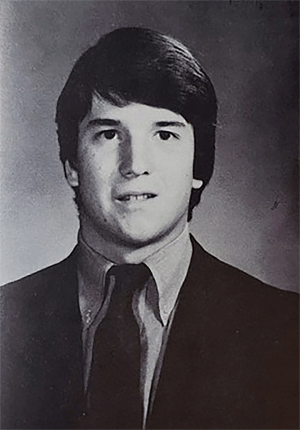by Christine Hauser
New York Times
September 26, 2018
NOTICE: THIS WORK MAY BE PROTECTED BY COPYRIGHT
YOU ARE REQUIRED TO READ THE COPYRIGHT NOTICE AT THIS LINK BEFORE YOU READ THE FOLLOWING WORK, THAT IS AVAILABLE SOLELY FOR PRIVATE STUDY, SCHOLARSHIP OR RESEARCH PURSUANT TO 17 U.S.C. SECTION 107 AND 108. IN THE EVENT THAT THE LIBRARY DETERMINES THAT UNLAWFUL COPYING OF THIS WORK HAS OCCURRED, THE LIBRARY HAS THE RIGHT TO BLOCK THE I.P. ADDRESS AT WHICH THE UNLAWFUL COPYING APPEARED TO HAVE OCCURRED. THANK YOU FOR RESPECTING THE RIGHTS OF COPYRIGHT OWNERS.
There are multiple women who have accused Judge Brett Kavanaugh of sexual misconduct. Here are their allegations and his responses. Published On Sept. 26, 2018 Credit Credit Image by T.J. Kirkpatrick for The New York Times
Three women have publicly accused Judge Brett M. Kavanaugh, the Supreme Court nominee, of sexual assault or misconduct, with the latest allegation emerging on Wednesday.
The accusations against Judge Kavanaugh started to surface this month as he faced confirmation hearings before the Senate Judiciary Committee. That panel is scheduled to vote on his nomination on Friday.
Judge Kavanaugh has denied the claims. On Monday, with his wife at his side, he said on Fox News that he had always “treated women with dignity and respect.”

Christine Blasey Ford
Christine Blasey Ford: What she said
Dr. Blasey came forward in an interview published by The Washington Post on Sept. 16, saying that Judge Kavanaugh had sexually assaulted her when she was about 15 at a party in suburban Maryland in the early 1980s.
She described a drunken Judge Kavanaugh pinning her on a bed, trying to take her clothing off and covering her mouth to keep her from screaming. “I thought he might inadvertently kill me,” the newspaper quoted her as saying. “He was trying to attack me and remove my clothing.”
Dr. Blasey said a friend of Judge Kavanaugh, Mark Judge, was in the room and participated in the assault. He has denied the allegations.
Her background
Dr. Blasey, 51, is a research psychologist at Palo Alto University in Northern California, who also goes by her married name, Ford.
At the time of the alleged assault, she was a student at Holton-Arms School, a private girls’ prep school in Bethesda, Md. He was a student at Georgetown Preparatory School, an elite Jesuit school in suburban Washington.

The entrance to Georgetown Preparatory School in North Bethesda, Md.Credit Jim Lo Scalzo/EPA, via Shutterstock
Important details
Her account was also detailed in a confidential July 30 letter to Senator Dianne Feinstein, the top Democrat on the Judiciary Committee.
The Post interview included quotations from Dr. Blasey’s husband and her lawyer, and it described a therapist’s notes from 2012 in which she spoke of the attack.
She also took a polygraph examination in August. The retired F.B.I. agent who conducted the examination, Jerry Hanafin, said the results showed “no deception indicated” — in effect, “she was being truthful.” Her lawyers released a copy of the polygraph report on Wednesday.
Judge Kavanaugh’s response
Judge Kavanaugh has denied the accusations, and the White House has said it stands by those denials.
What happened next
The report resulted in the delay of the Judiciary Committee’s vote on Judge Kavanaugh’s nomination the week it was published.
Dr. Blasey’s lawyers, Debra Katz and Lisa Banks, have said that since she went public with her story, she has been subjected to death threats, had her email hacked and had to leave her home.
The committee’s Republican leadership has retained an Arizona prosecutor specializing in sex crimes to help question Dr. Blasey about the allegations in a hearing on Thursday.

Deborah Ramirez
CreditSafehouse Progressive Alliance for Nonviolence, via Associated Press
Deborah Ramirez: What she said
Ms. Ramirez said in an interview published in The New Yorker on Sept. 23 that during the 1983-84 school year at Yale University, when she and Judge Kavanaugh were freshmen, he exposed himself to her during a drinking game in a dorm suite.
A small group of students sat in a circle and people selected who had to take a drink, she recalled, saying she was chosen frequently. She became drunk, she said.
Suddenly, Ms. Ramirez said, she saw a penis in front of her face. One man told her to “kiss it,” she told The New Yorker. As she moved to push it away, she said, she saw Judge Kavanaugh standing, laughing and pulling up his pants. Raised a Catholic, Ms. Ramirez was “embarrassed and ashamed and humiliated,” she said.
Her background
Ms. Ramirez, 53, was a student of sociology and psychology at the time. She arrived at Yale from Shelton, Conn., the daughter of a telephone company lineman and a medical technician. She attended a coed Catholic high school, St. Joseph, that was predominantly white but had a number of minority students, including Ms. Ramirez, whose father was Puerto Rican.

Judge Kavanaugh attended Yale Law School after graduating from Yale University. Credit Jessica Hill for The New York Times
Ms. Ramirez is now a registered Democrat who lives in Boulder, Colo., with her husband, Vikram Shah, a technology consultant. She has worked with a domestic violence organization and joined its board in 2014. She also works for the Boulder County housing department.
Important details
Ms. Ramirez said she told few people about the episode at the time. She and Judge Kavanaugh were not close friends, but they crossed paths, including at Yale and at a wedding in 1997.
Judge Kavanaugh’s response
Judge Kavanaugh denied the allegation, saying in a statement to The New Yorker, “This is a smear, plain and simple.”
What happened next
More than 2,200 Yale women have signed a letter of support for Ms. Ramirez; a similar letter has been circulating among Yale men.
A lawyer for Ms. Ramirez has written to the Judiciary Committee saying that his client would be “willing to cooperate” and tell her story under certain terms.

Julie Swetnick. Credit Michael Avenatti, via Associated Press
Julie Swetnick: What she said
On Wednesday, Ms. Swetnick accused Judge Kavanaugh of sexual misconduct at parties while he was a student at Georgetown Preparatory School in the 1980s. Her allegation was conveyed in a statement posted on Twitter by her lawyer, Michael Avenatti.
Ms. Swetnick said she observed Judge Kavanaugh at parties where women were verbally abused, inappropriately touched and “gang raped.”
She said she witnessed Judge Kavanaugh participating in some of the misconduct, including lining up outside a bedroom where “numerous boys” were “waiting for their ‘turn’ with a girl inside the room.” Ms. Swetnick said she was raped at one of the parties, and she believed she had been drugged.
Her background
Like Judge Kavanaugh, Ms. Swetnick, 55, is from the Washington suburbs. She grew up in Montgomery County, Md., graduating from Gaithersburg High School in 1980. She attended the University of Maryland, according to a résumé for her posted online, The Times reported.
She has held a variety of public and private sector jobs in Washington. Her résumé and her lawyer’s statement say she has held several government clearances, including with the State Department and the Justice Department.
Important details
Ms. Swetnick said in her statement that she had attended at least 10 house parties in the Washington area from 1981 to 1983 where Judge Kavanaugh and Mr. Judge, his friend, were present. (Mr. Judge has denied the allegations in her statement.)
Ms. Swetnick said she saw Judge Kavanaugh drinking “excessively” at parties and engaging in “abusive and physically aggressive behavior toward girls, including pressing girls against him without their consent, ‘grinding’ against girls, and attempting to remove or shift girls’ clothing to expose private body parts.”
Judge Kavanaugh’s response
In a statement issued by the White House, Judge Kavanaugh said there was no truth to the claim. “This is ridiculous and from the ‘Twilight Zone,’” he said. “I don’t know who this is and this never happened.”
What happened next
President Trump dismissed Ms. Swetnick’s lawyer, Mr. Avenatti, on Twitter as a “third rate lawyer who is good at making false accusations” and is seeking attention.
Judiciary Committee aides confirmed that they were examining Ms. Swetnick’s declaration. But the committee’s Republican chairman, Senator Charles E. Grassley of Iowa, told reporters that he did not expect to find anything.
Senator Lindsey Graham of South Carolina, another Republican on the committee, said he would “not be a participant in wholesale character assassination that defies credibility.”
A fourth accusation surfaces
Judge Kavanaugh faced another accusation after an anonymous letter, dated Sept. 22, was sent to Senator Cory Gardner, Republican of Colorado.
In the letter, a woman said her daughter had witnessed Judge Kavanaugh drunkenly push her friend, a woman he was dating, up against a wall “very aggressively and sexually” after they left a bar one night in 1998.
On Tuesday, Judge Kavanaugh was questioned about the letter by staff lawyers for the Judiciary Committee about the accusation, which he denied, according to a transcript.
“It’s ridiculous,” he said. “Total ‘Twilight Zone.’ And no, I’ve never done anything like that.”
Melissa Gomez contributed reporting.









